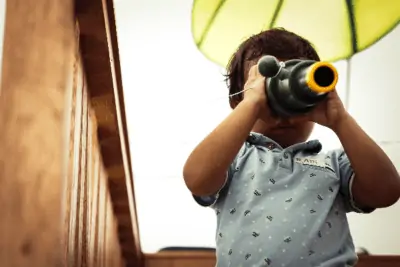Do I Have a Sleep Disorder or Something Else?
If you know how I operate, you probably already know that I think the number of diagnoses given out these days is a joke.
The medical system we’re dealing with in America is focused on pill fixes and not root causes.
That’s not to say diagnoses aren’t real. There are plenty of chronic diseases we’re seeing today that humans haven’t dealt with before.
In fact, there are 87 known sleep disorders as of right now, and they’re very real.
I’m starting this blog off with those statements because what we’re talking about today does deal with diagnoses… some of which are inaccurate.
We’re going to discuss the difference between a legitimate sleep disorder and a lifestyle deficiency.
The types of sleep disorders
There are 3 main categories of sleep disorders, with the others being sub-classifications of these.
- Sleep-wake disorders
- Sleep-related breathing disorders
- Neurological sleep disorders
This distinction is important because the underlying causes & organs involved in the disorder differ between these three disorder types.
Sleep-wake disorders
These have to do with the body’s circadian rhythm and whether the body clock is “tuned in” properly.
If your body clock is off, you could have issues with eating and sleeping at regular hours as well as hormone production.
Sleep-related breathing disorders
Diseases in this category are related to the respiratory system – not the circadian rhythm.
This means it’s typically a hiccup (pun intended) in the breathing cadence, the breathing rate changes suddenly, or sometimes just stop breathing altogether.
The disorder must start in the respiratory system to fall into this category.
Neurological sleep disorders
You probably guessed it: neurological sleep disorders have to do with nerve issues that occur around sleep.
This could look like pain, numbness or tingling, awkward or unusual movements, vocal outbreaks, things of that nature.
The nervous system is behaving abnormally when it’s time for that shut-eye.
The names of common sleep disorders
Some of the most common sleep disorders are:
- Insomnia, 2 main types:
- Onset
- Maintenance
- Parasomnia
- Hypersomnia
- Including narcolepsy
- Sleep apnea
- Circadian rhythm disorders, a few types:
- General
- Shift work disorder
- Jet lag disorder
- Restless leg syndrome (RLS)
Each of these falls into the bigger categories mentioned above – either as a sleep-wake disorder, a sleep-related breathing disorder, or a neurological sleep disorder.
Sleep-wake disorders
Most of the above disorders fall into the sleep-wake disorder category.
Insomnia
Insomnia is either in the onset or maintenance category.
Onset insomnia means you have trouble falling asleep. Maintenance insomnia means you have trouble staying asleep.
This is the most common sleep disorder and about 30% of American adults claim to have it.
Check out this in-depth guide on Insomnia- The Symptoms, The Types, and How to deal with it
Parasomnia
Parasomnia is the condition that causes people to act strangely when falling asleep.
This might include talking, walking, eating, or acting as if they’re falling asleep multiple times.
Hypersomnia
Hypersomnia refers to the inability to stay awake during the day. You might know how I feel about a diagnosis this vague.
However, narcolepsy is a very specific condition, and it also falls into this category. This causes extreme daytime sleepiness and “sudden attacks of sleep.”
If you’re randomly falling asleep during the day… yeah, you probably have something more going on.
Circadian rhythm disorders
Any sleep disorder that deals with a body clock that is “off” from the typical sleep schedule falls into this category.
Some more specific types of circadian rhythm disorders are shift worker disorder and jet lag disorder.
Their names give away their ailments – shift worker disorder is a reversed or partially reversed sleep schedule, and jet lag disorder is any sort of shifted sleep schedule due to travel.
Sleep-related breathing disorders
Sleep apnea is the most common sleep-related breathing disorder.
This is when your body stops breathing while you’re asleep for 10 or more seconds at a time.
Since this condition seems to start more in the respiratory system and just so happens to occur during sleep, sleep apnea is categorized as a sleep-related breathing disorder.
There are other, less-common disorders in this category but I’ll cover them more in a future article.
Neurological disorders
Lastly, for the purposes of this blog, the neurological sleep disorder we’ll mention is Restless Leg Syndrome (RLS).
This might look slightly differently from person to person, but the main symptom is an incredible urge to move the legs. It often happens at night.
What else could it be?
If it’s not a sleep disorder, what else could be your problem?
I’m going to go ahead and call it a lifestyle deficiency.
This means that there are some foundational pieces of your health that your current lifestyle isn’t supporting.
If you’re already diagnosed and medicated for a sleep disorder, the legal medical advice is that you must work with a physician to decrease your dosage over time to wean off of the medication.
When I worked with the Navy SEALS on this, we implemented lifestyle change and had a 4-week medication decrease program to transition them off of the meds.
It worked extremely well.
So… is it a Sleep Disorder or Lifestyle Deficiency?
The only way to test this for certain is through a sleep study medical exam.
You need to be hooked up to various EKGs and devices to measure your sleep, so doctors can observe and notice any indicators of disorder.
But in my opinion, there are some key lifestyle items that need to be in place before we can really be sure the issues are from a true, lifetime-lasting disorder.
Many “disorders” can be reversed with lifestyle, and sleep disorders are no different.
Some tactical things you should be optimizing if you’re having sleep issues:
- An anti-inflammatory diet that is good for your body, as proven by blood work
- Maintaining hydration (lots of water!)
- An active lifestyle
- Proper supplementation
- Healthy interpersonal relationships
- A solid nighttime ritual to support sleep
If you begin by optimising these things, even if you’ve got a diagnosed sleep disorder, I’m very certain you’ll see improved sleep.
You can work with your doctor like I mentioned in the paragraph above, to wean yourself off of medications if you’d like.
My hope is that I can convince anyone on sleeping pills to do anything they can to get off of them.
And if you’re currently dealing with poor sleep, start working on the health areas in the list above. Maybe your symptoms will decrease if you simply have a stronger foundation of overall health.
If you’d like a great supplement to get you started, my Sleep Remedy was designed for exactly this.
I’ve used this formula on thousands of patients to help wean them off of sleeping pills and into an overall better state of health.
Find out more about Doc Parsley’s Sleep Remedy here:



